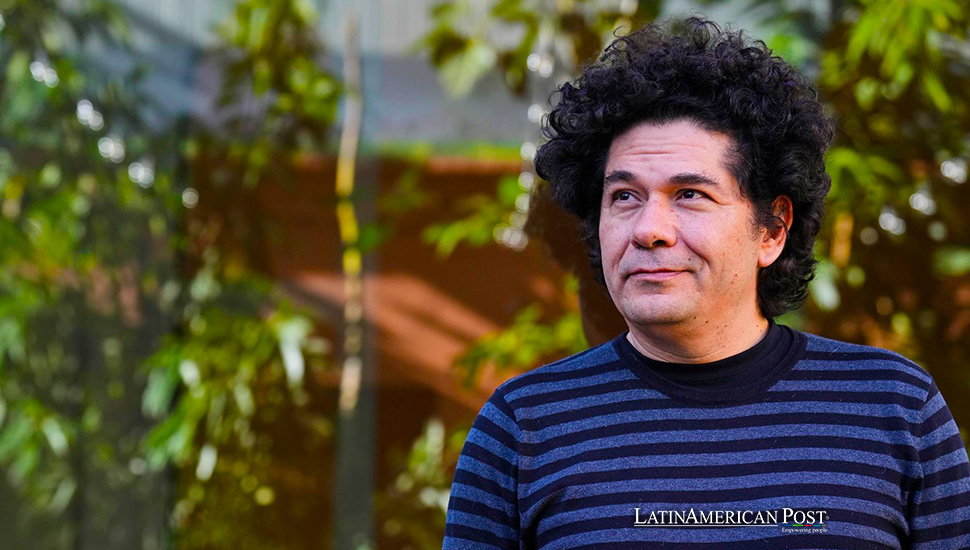Villalobos: In Neoliberalism Lies the Origin of Mexico’s Problems with Drug Trafficking

Mexican writer Juan Pablo Villalobos, in concluding his autobiographical narrative with “El pasado anda atrás de nosotros,” delves into the deep-seated issues of neoliberalism and narcotraffic, revealing a Mexico caught between past and present.
Unveiling the Autobiographical Trilogy
Juan Pablo Villalobos, a distinguished voice in contemporary Mexican literature, has recently closed his autobiographical trilogy with his latest novel, “El pasado anda atrás de nosotros.” Through this work, Villalobos navigates the intricate landscape of Mexico’s societal changes, tracing the origins of today’s drug trafficking problems back to the labor precarization brought on by neoliberal policies. This novel, alongside its predecessors “No voy a pedirle a nadie que me crea” and “Peluquería y letras,” creates a narrative mosaic that reflects on Mexico’s personal and collective identity amidst global and local tensions.
In “El pasado anda atrás de nosotros,” the protagonist, sharing the author’s name, returns to his Mexican hometown after years abroad, only to find a reality far removed from his memories. This homecoming, intended as a brief interlude, unfolds into a series of startling discoveries about the changed fabric of his country. Villalobos uses this narrative to explore themes of belonging, violence, and the unanticipated consequences of leaving one’s roots behind.
The historical context of neoliberalism in Mexico, particularly from the late 1980s and early 1990s, is pivotal to understanding Villalobos’s critique. Adopting neoliberal policies under the guise of modernization promised economic growth and integration into the global market. However, it also led to significant social and economic disparities, laying the groundwork for the drug trafficking issues that plague Mexico today. Villalobos’s hometown, Lagos de Moreno in Jalisco, is a microcosm of these transformations, where foreign capital investment contrasted starkly with local socio-economic realities.
Villalobos’s narrative is not just a reflection on Mexico’s external challenges but also an introspection into the Mexican psyche. The protagonist’s return is a journey into a “mirror life,” where alternate realities of what could have been confronting the stark truths of the present. According to Villalobos, this duality is a common thread among those who leave their homeland, reflecting on the lives they might have led had they chosen differently.
Erosion of State Control: Villalobos’s Concerns
The writer’s concern for Mexico’s trajectory is palpable, especially regarding the state’s diminishing control over violence. This situation suggests a potential descent into a failed state, where non-governmental actors wield significant power, challenging the state’s monopoly on violence. Villalobos’s observations resonate with a broader discourse on governance, justice, and the rule of law in Mexico, highlighting the intricate relationship between state authority and non-state actors, including narcos and private armies.
As Villalobos concludes his autobiographical journey, he hints at a return to pure fiction in his future work, perhaps to explore these themes without the constraints of personal narrative. His literary evolution mirrors the complex realities of contemporary Mexico, where fiction and reality intertwine to reveal more profound truths about society, culture, and politics.
The adaptation of Villalobos’s works into films, including “La Fiesta de la Madriguera” and “No voy a pedirle a nadie que me crea,” signifies the broader cultural impact of his narratives. These stories transcend the written word, entering visual and communal spaces to engage with audiences on multiple levels. Directed by prominent Mexican filmmakers Manolo Caro and Fernando Frías de la Parra, these adaptations underscore the relevance of Villalobos’s reflections on Mexican society and the universal themes of identity, belonging, and change.
Also read: Peru’s Cabinet Shuffle Exemplifies Boluarte’s Bid to Revitalize Economy Amid Recession
Villalobos’s literary journey, marked by introspection, critique, and storytelling, offers a window into the soul of Mexico. His works invite readers to ponder the impacts of global economic policies on local lives, the nature of violence and power, and the endless quest for identity in a rapidly changing world. As Mexico continues to navigate the challenges of neoliberalism and drug trafficking, Villalobos’s narratives stand as a testament to the resilience and complexity of the Mexican spirit, echoing the timeless struggle between tradition and modernity, home and exile, reality and memory.




